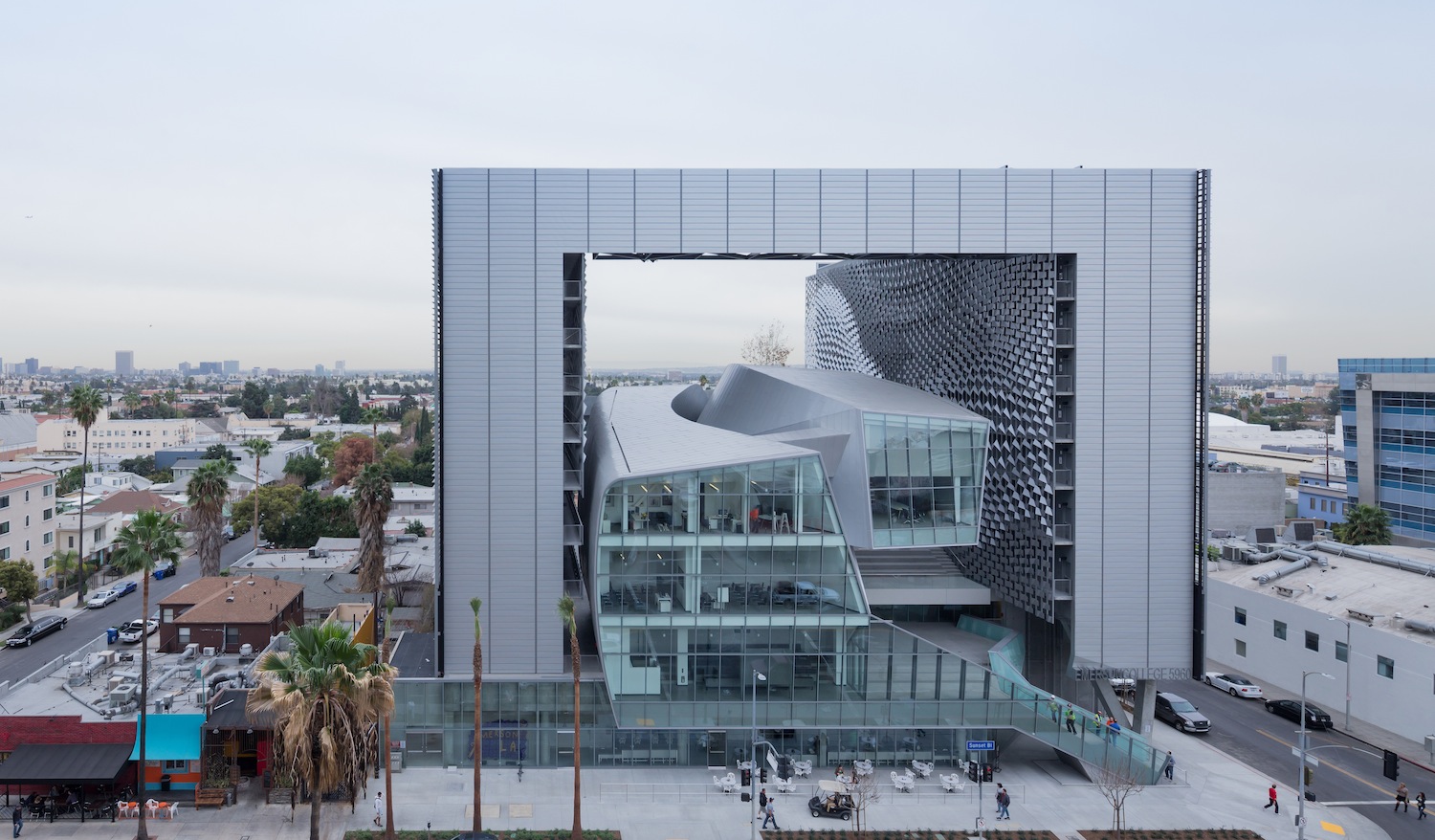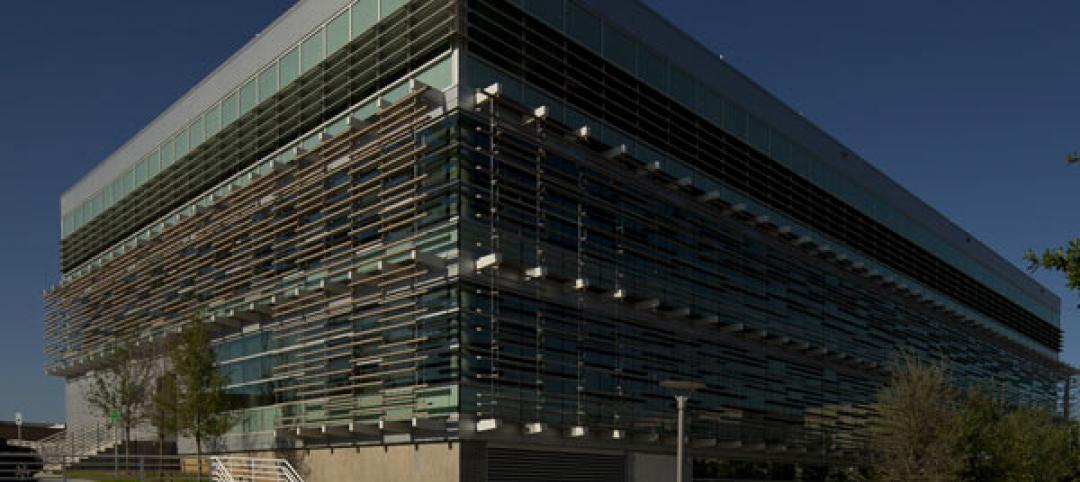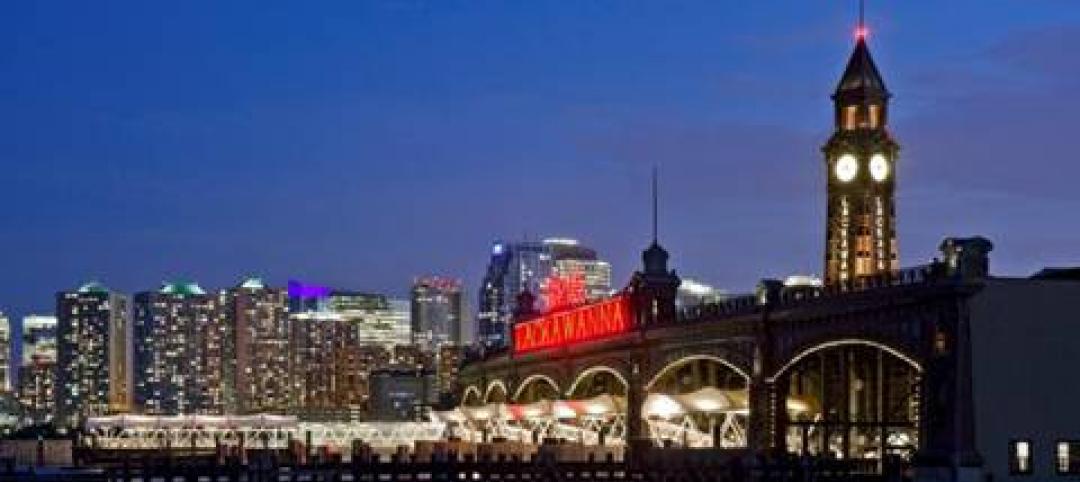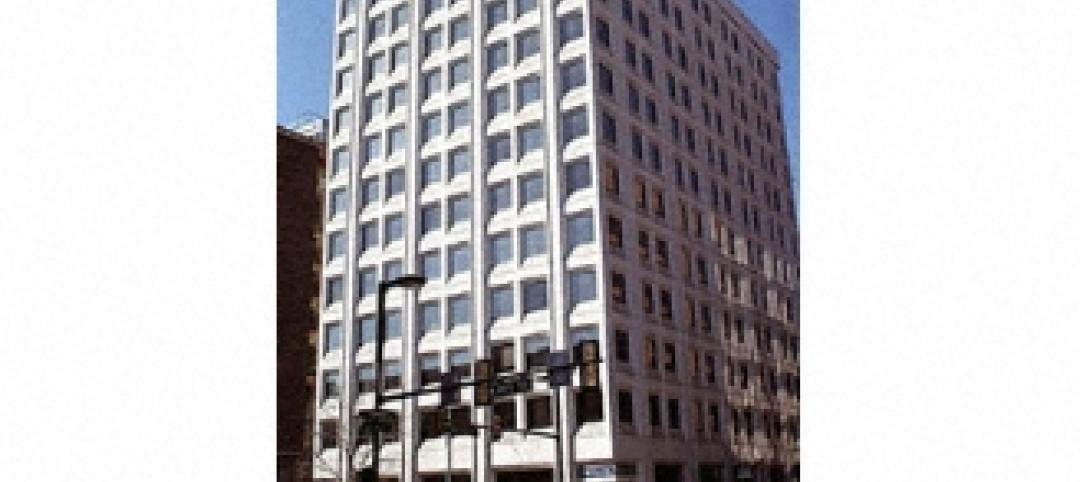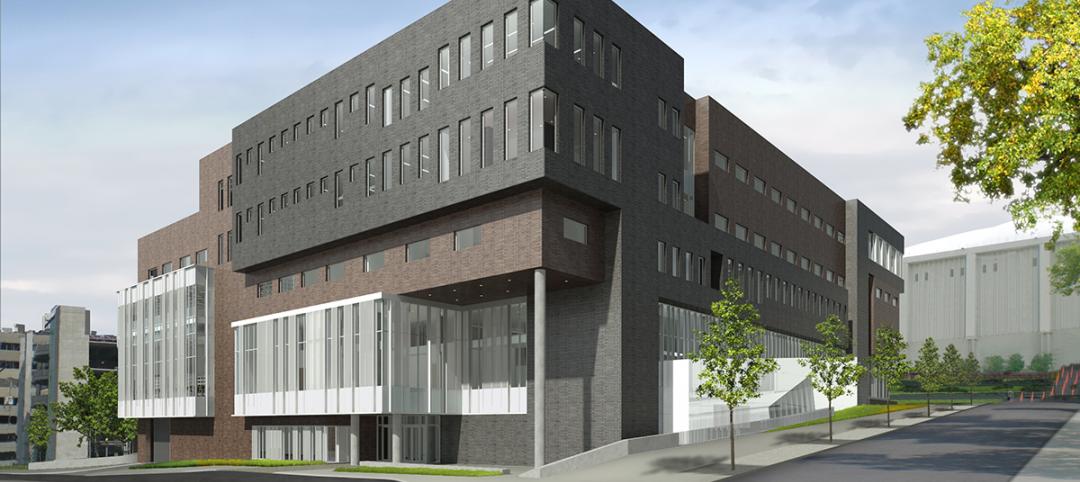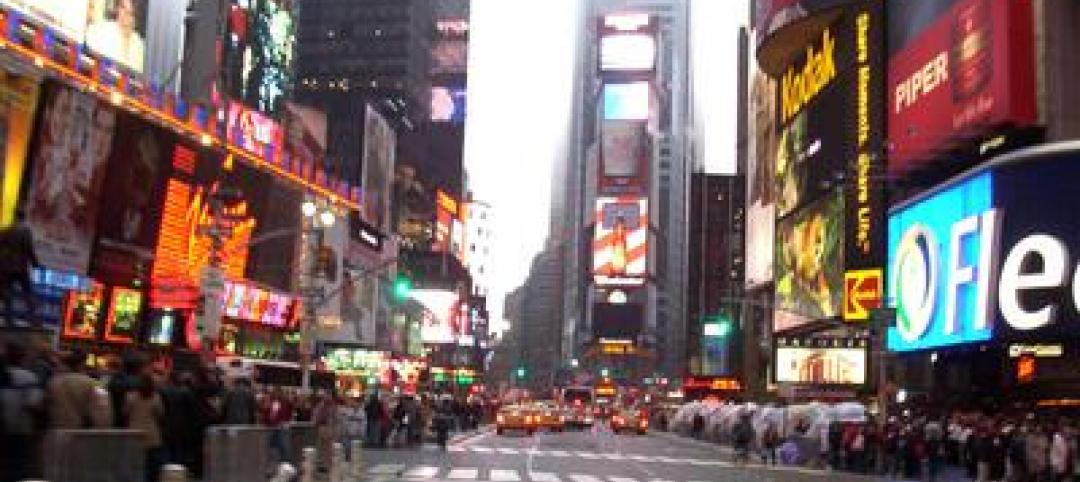Larry David, Maria Menounos, and Sofia Vergara are among the Hollywood elites scheduled to attend a star-studded gala March 8 to celebrate the opening of Emerson College's new $85 million Los Angeles campus building.
Located on Sunset Boulevard, in the heart of LA's entertainment and communications industry, the 10-story, 107,000-sf multipurpose campus can house up to 217 students and includes wired classrooms, an open-air screening and live-performance space, a Dolby Surround 7.1 audio post-production suite, a 4K screening room, computer labs, mixing suites, and a planned green screen motion capture stage.
Design architect Thom Mayne of Morphosis said the building's form, which takes the shape of a massive, shimmering aircraft hangar, housing a sculptural, glass-and-aluminum base building, is designed to "expand the interactive, social aspect of education. We focused on creating with the broader community in mind—both in terms of public space and sustainable design.”
The building’s exterior features a dynamic sun shading system that adapts to changing weather conditions to maintain optimal indoor temperature and natural light levels. Heating and cooling of the building is further optimized through an innovative passive valence system developed by Buro Happold.
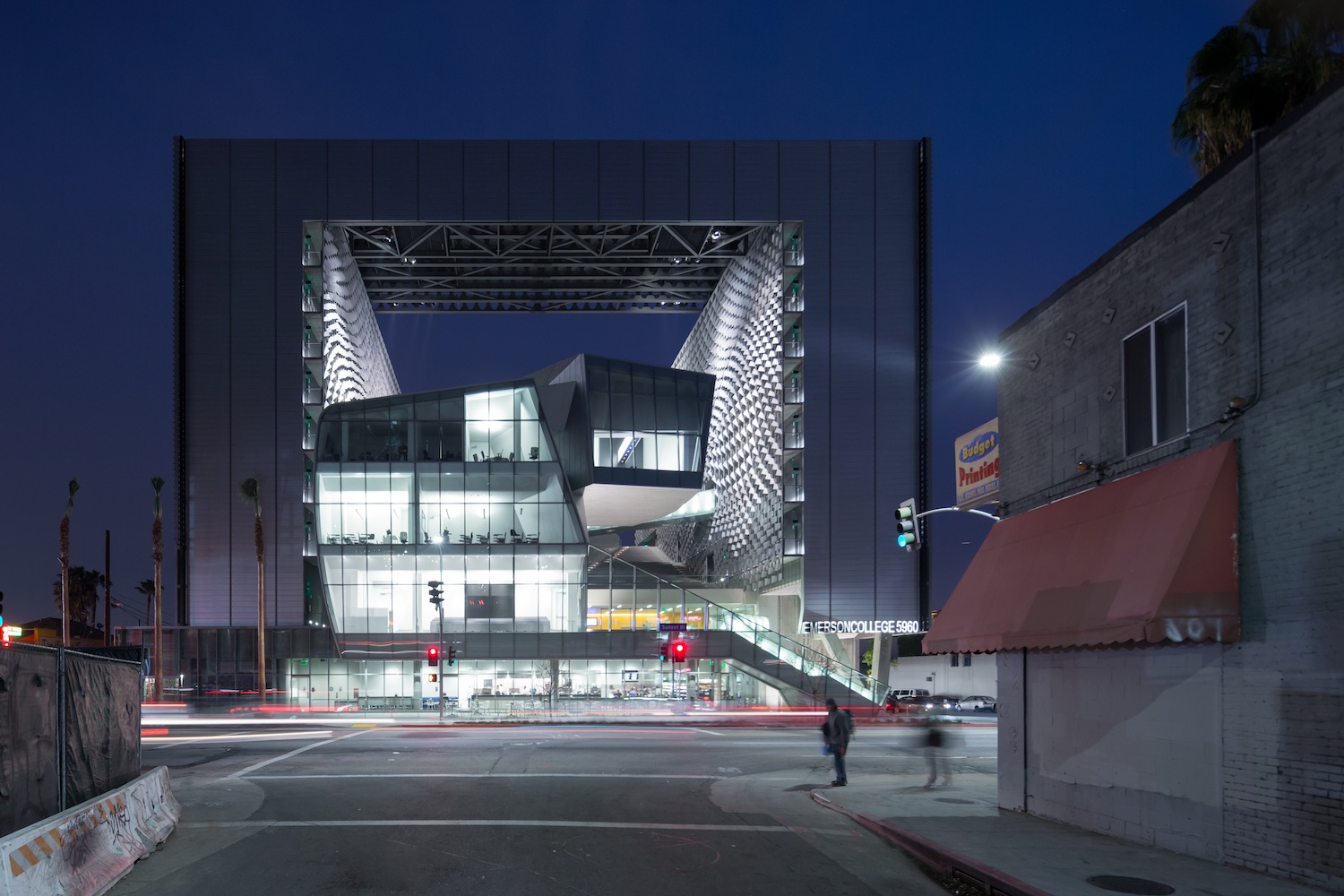
Photo: Iwan Baan - www.iwan.com / Courtesy Emerson College
Additional green design initiatives include: the use of recycled and rapidly renewable building materials; installation of efficient water-saving fixtures; a high-performance glass curtain-wall to minimize heat gain; landscaping and a living green wall; and a central management infrastructure to monitor overall building efficiency.
Morphosis' design statement:
Bringing student housing, instructional facilities, and administrative offices to one location, ELA condenses the diversity of a college campus into an urban site. Evoking the concentrated energy of East-Coast metropolitan centers in an iconic Los Angeles setting, a rich dialogue emerges between students’ educational background and their professional futures.
Fundamental to the Emerson Los Angeles experience, student living circumstances give structure to the overall building. Housing up to 217 students, the domestic zones frame a dynamic core dedicated to creativity, learning, and social interaction. Composed of two slender residential towers connected by a helistop, the 10-story square frame encloses a central open volume to create a flexible outdoor “room.”
A sculpted form housing classrooms and administrative offices weaves through the void, defining multi-level terraces and active interstitial spaces that foster informal social activity and creative cross-pollination. Looking out onto the multi-level terrace, exterior corridors to student suites and common rooms are shaded by an undulating, textured metal scrim spanning the full height of the towers’ interior face.
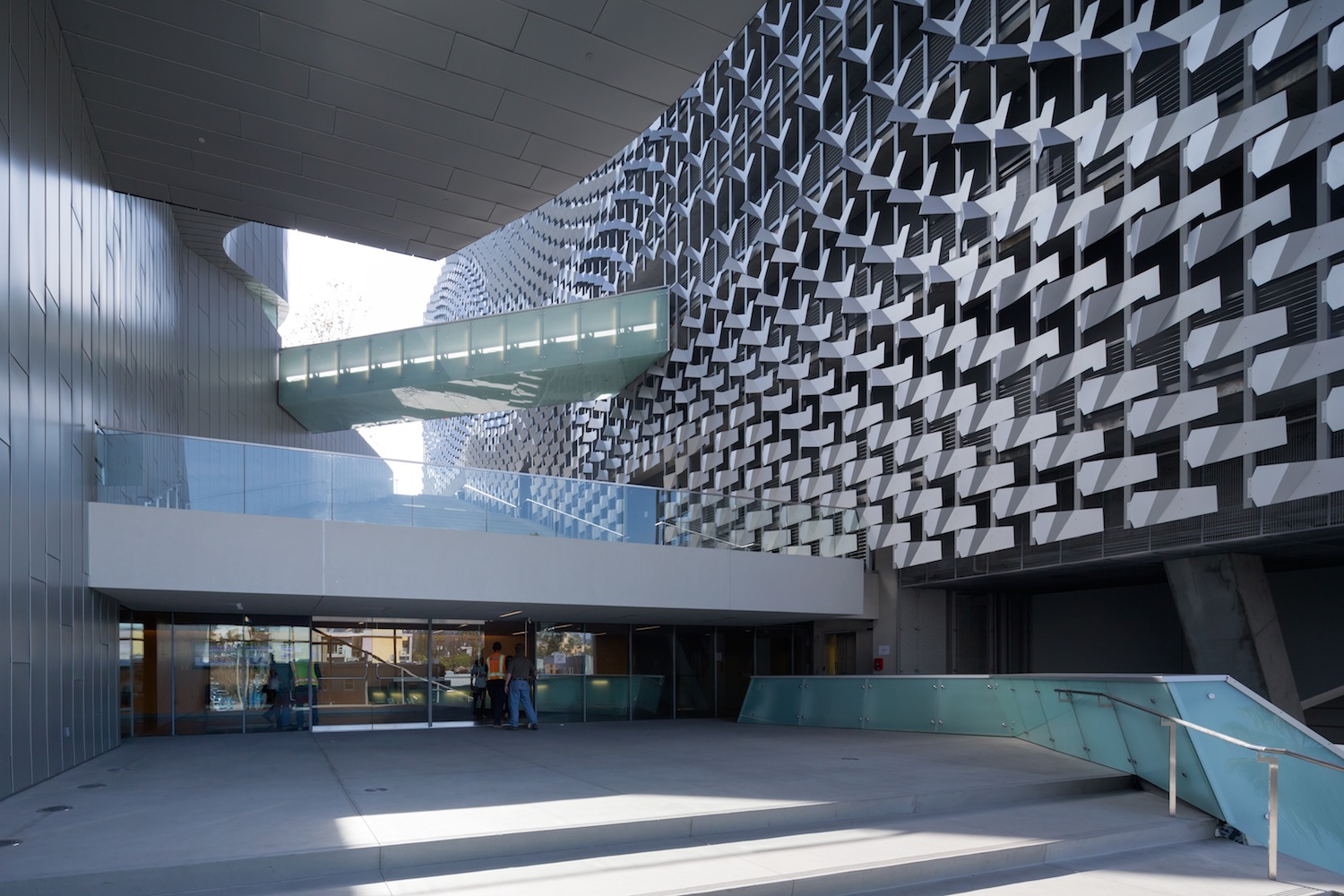
Photo: Iwan Baan - www.iwan.com / Courtesy Emerson College
Looking to the local context, the center finds a provocative precedent in the interiority of Hollywood film studios, where outwardly regular façades house flexible, fantastical spaces within. With rigging for screens, media connections, sound, and lighting incorporated into the façade’s metal framework, this dynamic visual backdrop also serves as a flexible armature for outdoor performances. The entire building becomes a stage set for student films, screenings, and industry events, with the Hollywood sign, the city of Los Angeles, and the Pacific Ocean in the distance providing added scenery.
Anticipated to achieve a LEED Gold rating, the new center champions Emerson’s commitment to both sustainable design and community responsibility. Wrapping the building’s northwest corner, a green wall underscores the towers’ actively changing exterior skin. Connected to weather stations that track the local climate, temperature, and sun angle, the automated sunshade system opens and closes horizontal fins outside the high-performance glass curtain-wall to minimize heat gain while maximizing daylight and views.
Further green initiatives include the use of recycled and rapidly renewable building materials, installation of efficient fixtures to reduce water use by 40%, energy savings in heating and cooling through a passive valence system, and a building management and commissioning infrastructure to monitor and optimize efficiency of all systems.
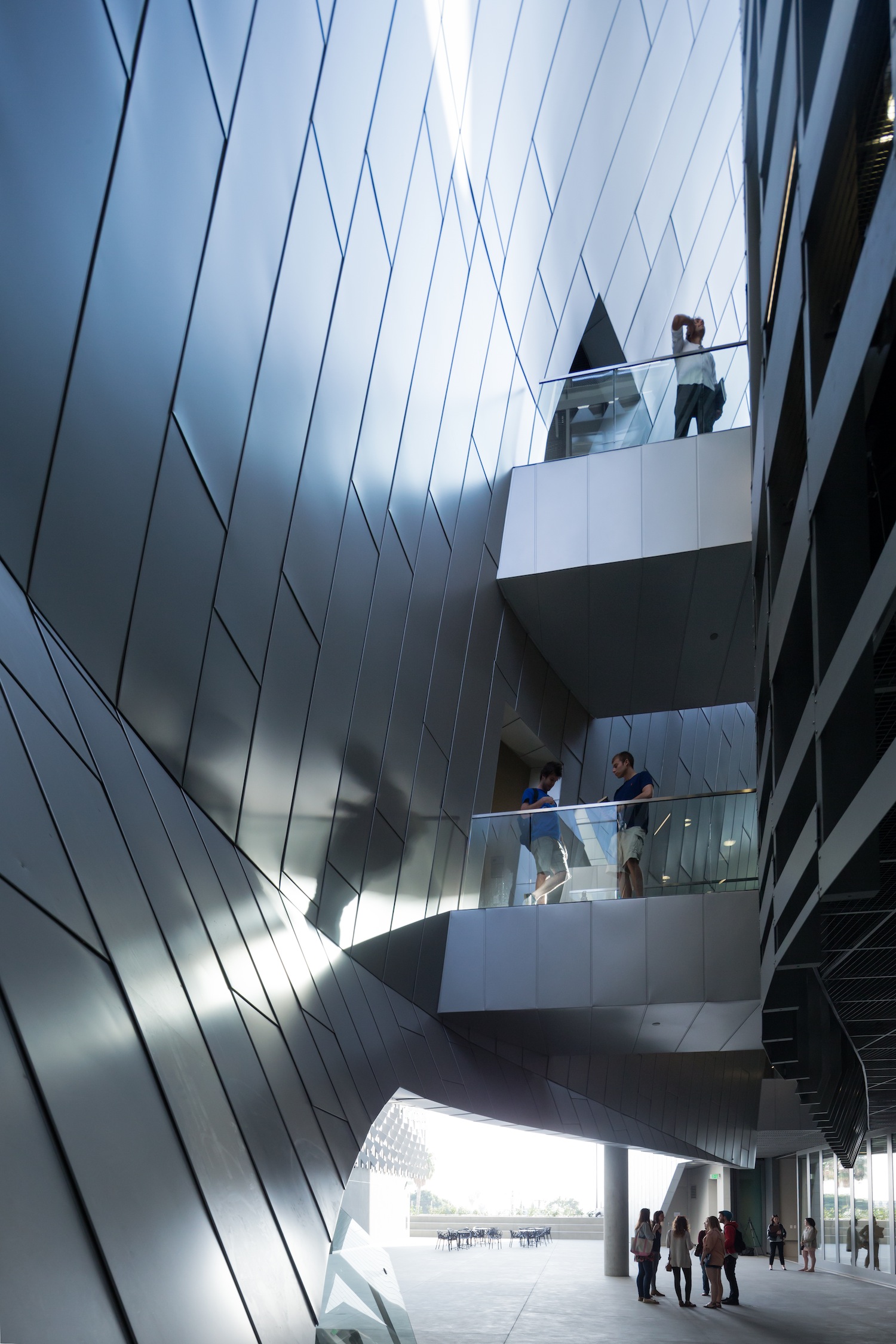
Photo: Iwan Baan - www.iwan.com / Courtesy Emerson College
Building Team
Architect: Morphosis Architects (Thom Mayne)
Structural engineer: John A. Martin Associates, Inc.
MEP engineer: Buro Happold
General contractor: Hathaway Dinwiddie Construction Company
Development consultant: Robert Silverman
Civil engineer: KPFF
IT/BIM implementation: Synthesis
Lighting consultant: Horton Lees Brogden Lighting Design, Inc.
Specifications: Technical Resources Consultants, Inc.
Theater consultant: Auerbach Pollock Friedlander
Acoustic consultant: Newson Brown Associates LLC
Audiovisual/IT consultant: Waveguide Consulting Inc.
Code/life safety consultant: Arup
Facade consultant: A. Zahner Architectural Metals; JA Weir Associates
Cost consultant: Davis Langdon
Vertical transportation: Edgett Williams Consulting Group, Inc.
Curtain wall consultant: Walters & Wolf
LEED consultant: Davis Langdon
Graphics: Follis Design
Waterproofing consultant: Independent Roofing Consultants
Geotechnical consultant: Geotechnologies Inc.
Sustainability: Davis Langdon
Landscape consultant: Katherine Spitz Associates
Architectural specifications consultant: Technical Resources Consultants, Inc.
Architectural visualization: Kilograph
Smoke control: Exponent
Exterior building maintenance: Olympique
Project Information
Cost: $85 million
Total size: 107,000 sf (70,500 sf residential; 30,100 sf instructional/administrative; 6,400 sf retail for Emerson kitchen)
Lot size: 37,351 sf
Building height: 130 feet; 10 stories
Parking: three levels of subterranean parking with 239 parking spaces
Housing: capacity for 217 students: 159 single rooms (eight are designated for resident assistants), 29 double rooms, and four faculty/staff apartments
Instructional spaces: six general purpose classrooms; computer lab; editing lab; audio lab; distance learning room; two performance studios; two dressing rooms; two study rooms; 4K screening room; large assembly room; audio post mixing suite
For more information, read Emerson's article on the Emerson LA grand opening and the LA Times report.
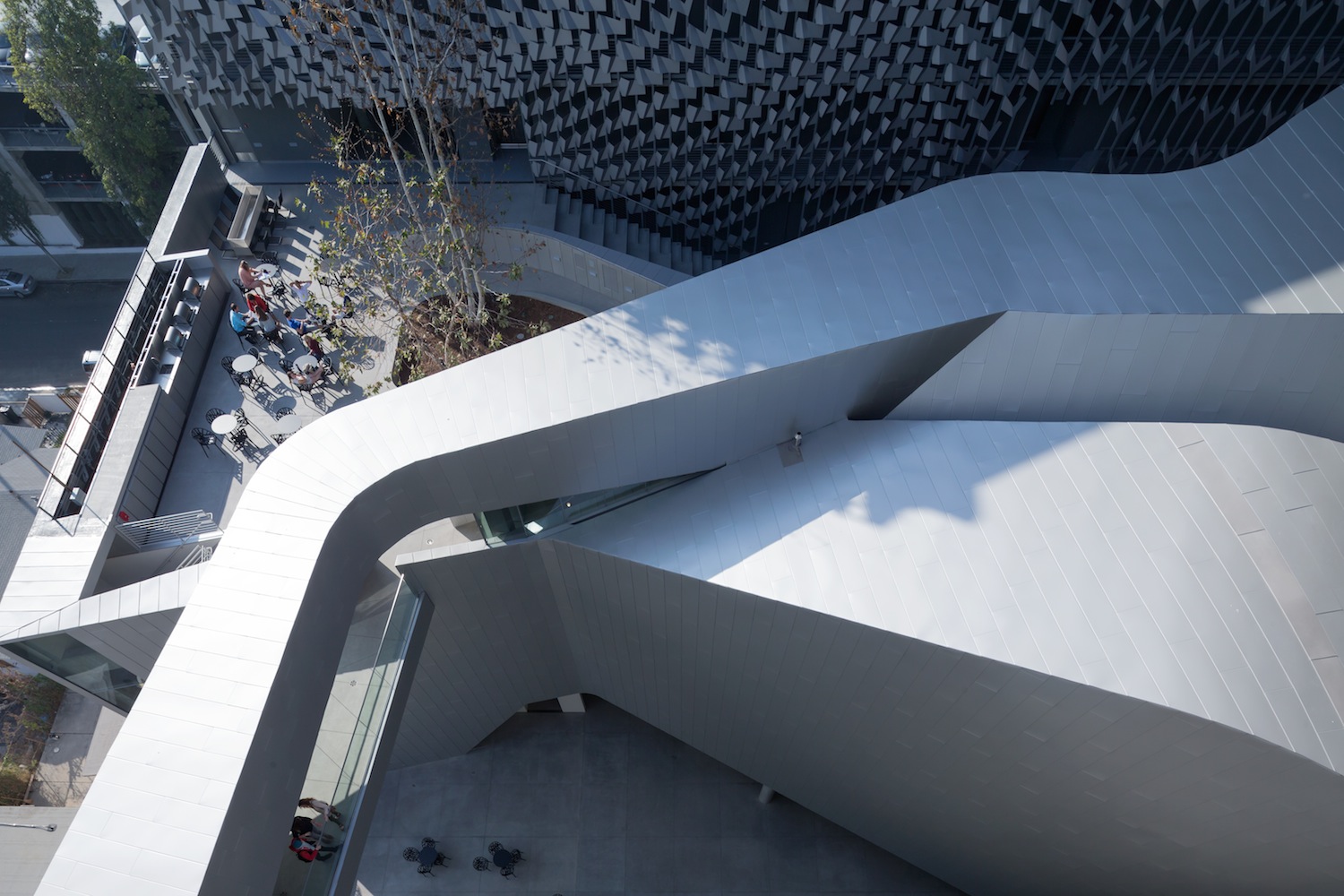
Photo: Iwan Baan - www.iwan.com / Courtesy Emerson College
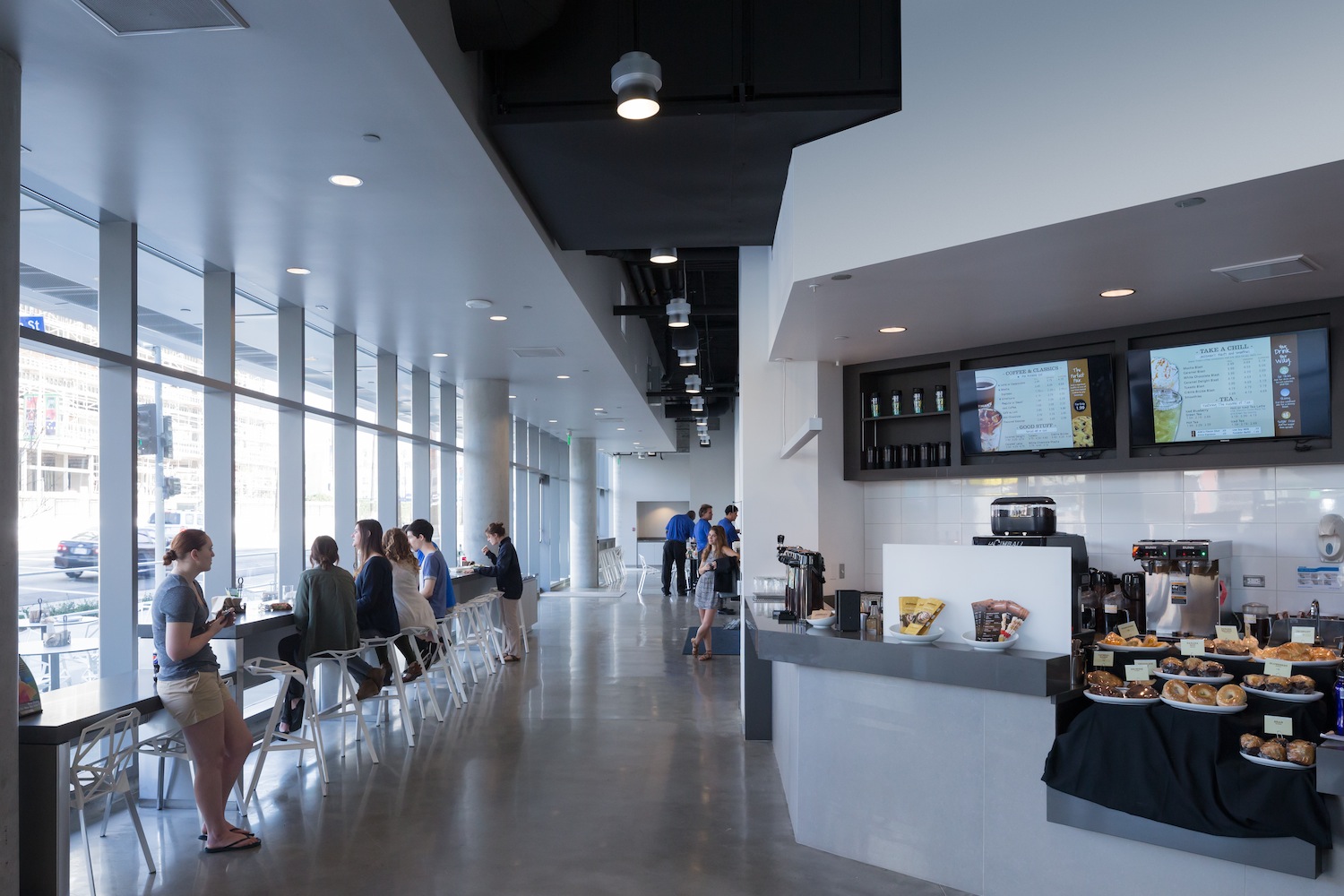
Photo: Iwan Baan - www.iwan.com / Courtesy Emerson College
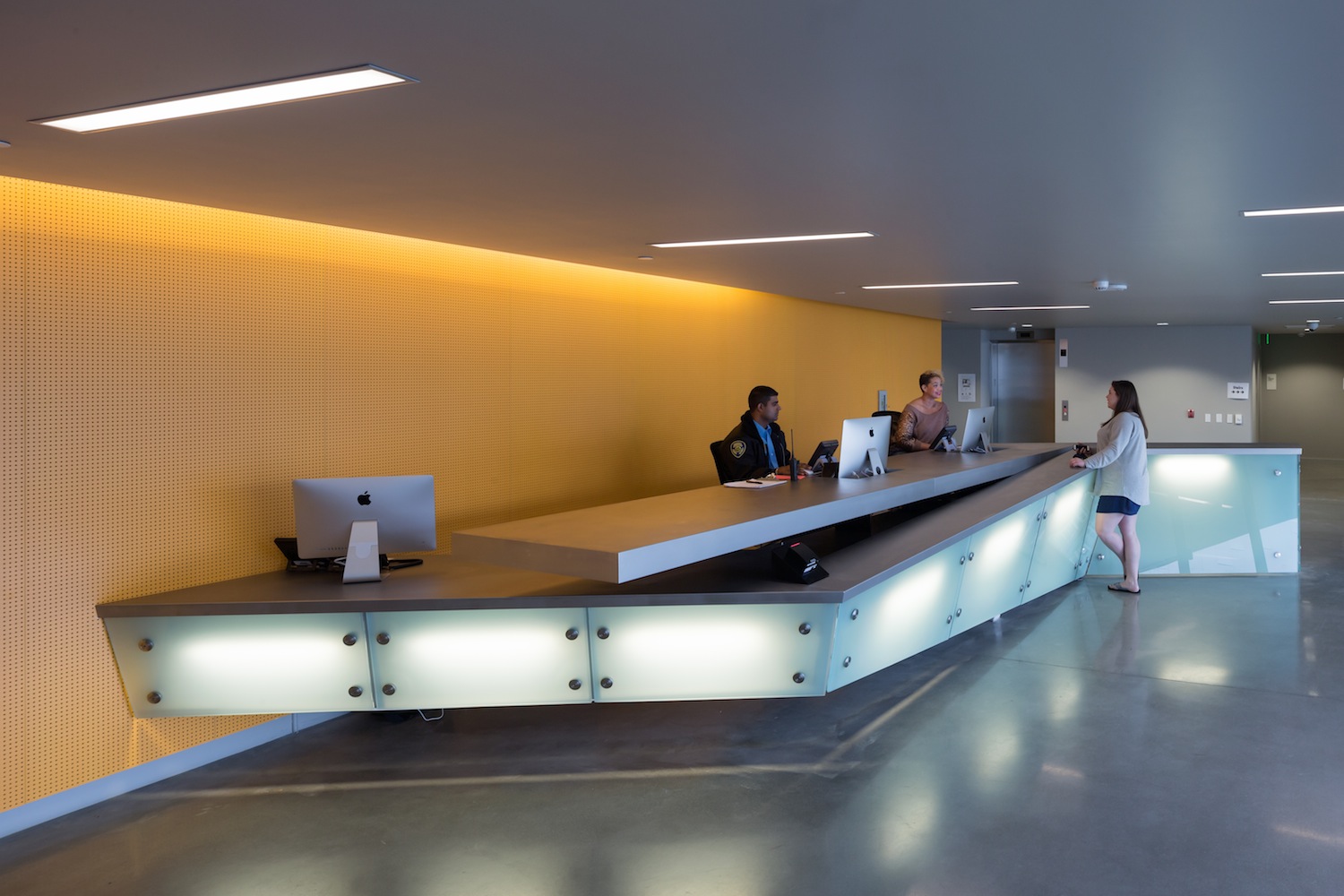
Photo: Iwan Baan - www.iwan.com / Courtesy Emerson College
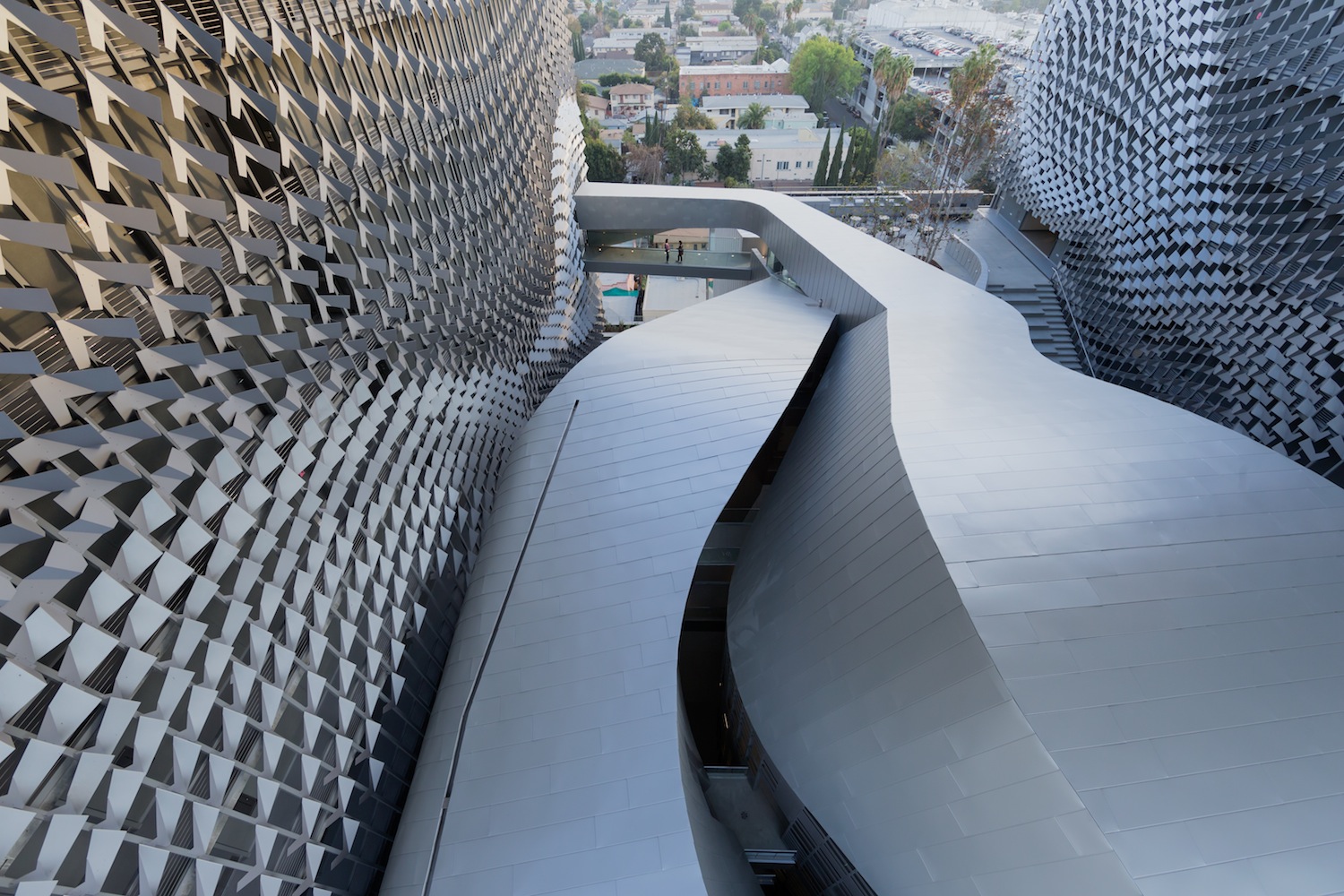
Photo: Iwan Baan - www.iwan.com / Courtesy Emerson College
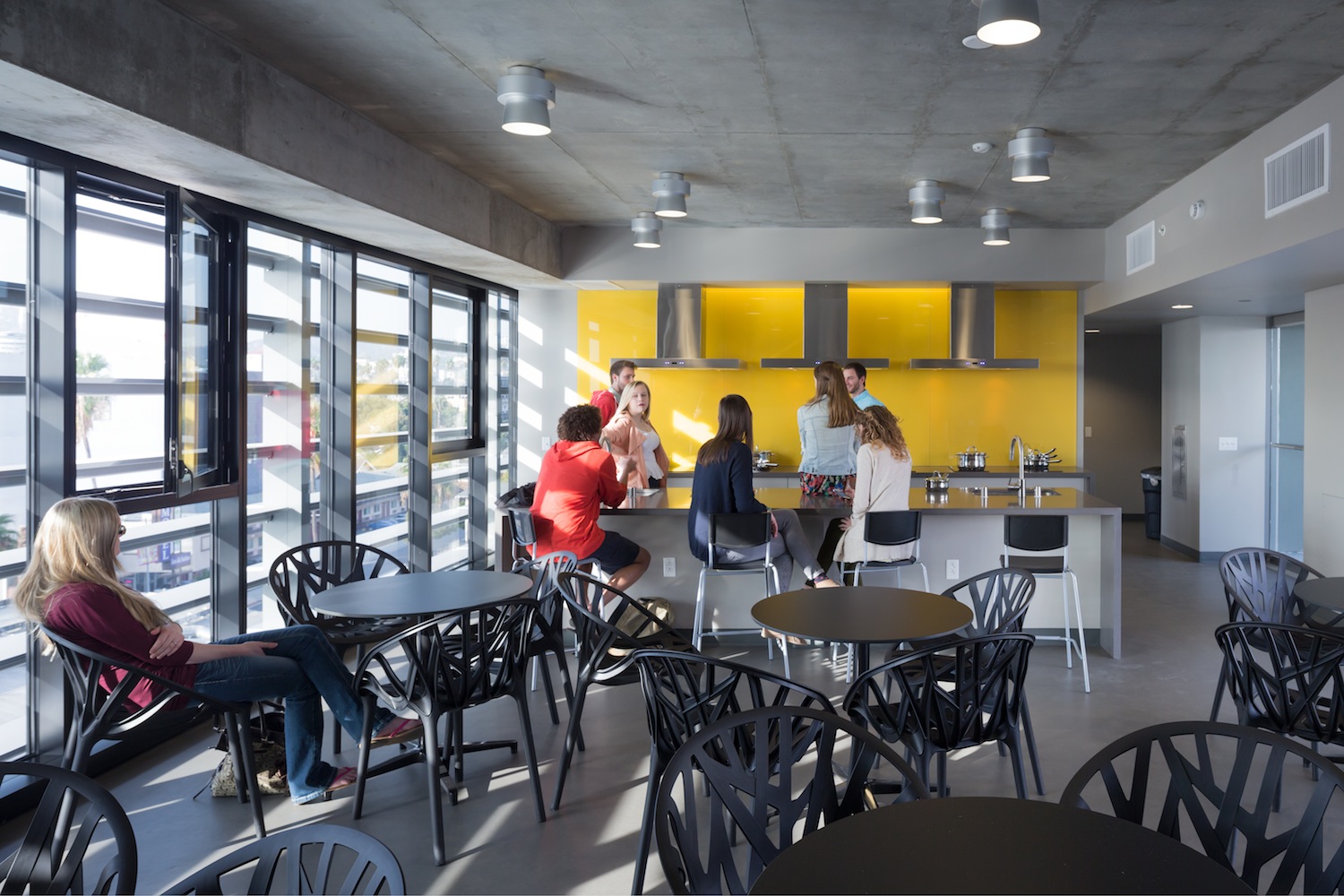
Photo: Iwan Baan - www.iwan.com / Courtesy Emerson College
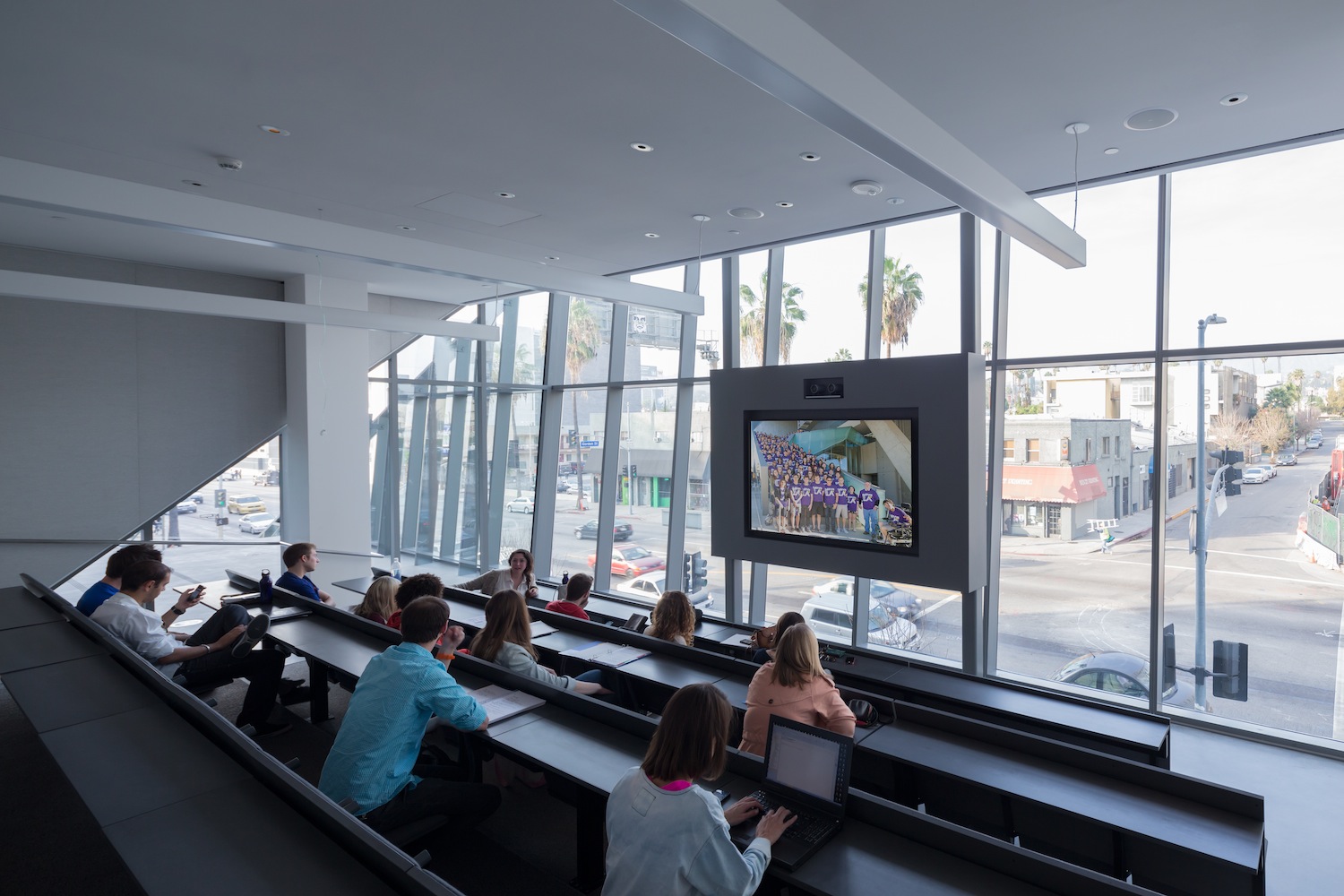
Photo: Iwan Baan - www.iwan.com / Courtesy Emerson College
Related Stories
| Dec 27, 2011
Suffolk Construction celebrates raising of Boston Tea Party Ships & Museum cupola
Topping off ceremony held on 238th Anniversary of Boston Tea Party.
| Dec 27, 2011
State of the data center 2011
Advances in technology, an increased reliance on the Internet and social media as well as an increased focus on energy management initiatives have had a significant impact on the data center world.
| Dec 27, 2011
USGBC’s Center for Green Schools releases Best of Green Schools 2011
Recipient schools and regions from across the nation - from K-12 to higher education - were recognized for a variety of sustainable, cost-cutting measures, including energy conservation, record numbers of LEED certified buildings and collaborative platforms and policies to green U.S. school infrastructure.
| Dec 21, 2011
DOE report details finance options for PV systems in schools
The report examines the two primary types of ownership models used to obtain PV installations for school administrators to use in selecting the best option for deploying solar technologies in their districts.
| Dec 21, 2011
AIA Chicago & AIA Chicago Foundation 2011 Dubin Family Young Architect Award announced
The Dubin Family Young Architect Award is bestowed annually and recognizes excellence in ability and exceptional contributions by a Chicago architect between the ages of 25 and 39.
| Dec 21, 2011
Few silver linings for construction in 2012
On the brighter side, nearly half of respondents (49.7%) said their firms were in at least “good” financial health, and four-fifths (80.2%) said their companies would at least hold steady in revenue in 2012.
| Dec 21, 2011
Hoboken Terminal restoration complete
Restoration of ferry slips, expanded service to benefit commuters.
| Dec 21, 2011
BBI key to Philly high-rise renovation
The 200,000 sf building was recently outfitted with a new HVAC system and a state-of-the-art window retrofitting system.
| Dec 20, 2011
Gluckman Mayner Architects releases design for Syracuse law building
The design reflects an organizational clarity and professional sophistication that anticipates the user experience of students, faculty, and visitors alike.
| Dec 20, 2011
Research identifies most expensive U.S. commercial real estate markets
New York City, Washington, D.C. and San Mateo, Calif., rank highest in rents.


